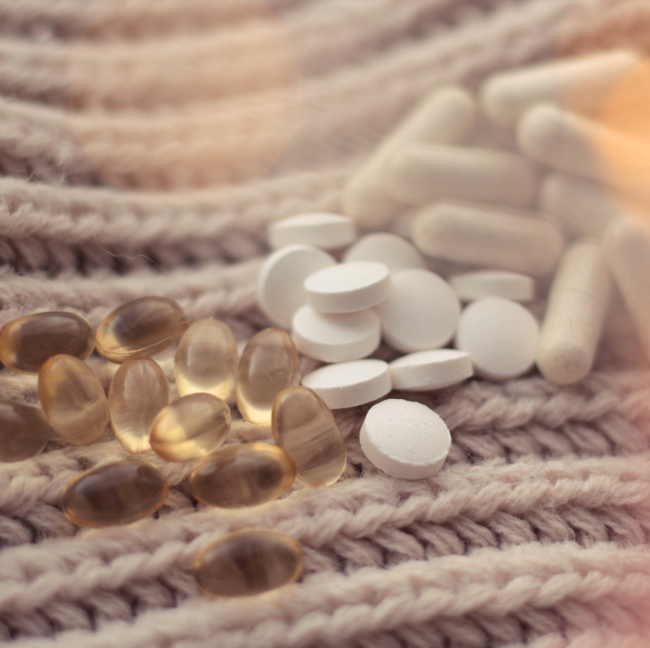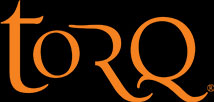As well as your day-to-day nutrition playing a crucial role in in your overall health, wellbeing and the performance of your immune system.
At TORQ we’ve always been advocates of a healthy balanced diet. In a previous resource when we discussed this subject we said:
“…the constituents of a universally healthy balanced diet must never be ignored. For intestinal health and the delivery of vital micronutrients such as vitamins and minerals, you should always look to consume plenty of fibrous fresh fruit and vegetables. These foods ease the passage of all of your nutrients through the intestine, helping to keep it clean, healthy and functional. We won’t focus on any specific vitamins or minerals here, because you need them all and the beauty of ensuring that you consume fresh fruit and vegetables is that you will indeed get them all.
At TORQ, we love organic food, which is why a number of our products are Soil Association Certified Organic and we advise, where possible, to choose organic options. From a pure performance perspective, the difference between ‘natural’ and ‘organic’ foods is likely to be negligible, but from a long term health perspective there are probably going to be benefits to going down the organic route with more concentrated vitamin/mineral levels and less pollution from undesirable herbicides and pesticides. It’s a personal choice of course and there’s a valid argument to say that ‘going organic’ makes no appreciable difference to health either – this is our opinion and perhaps time will tell. It would certainly be a valid approach to consume organic produce where practical – perhaps a halfway house?”

We stand by these sentiments and just as it applied to Performance Nutrition then, it applies to immunity now. The problem with popping supplements right left and centre is that it becomes easy to ignore the bigger picture of holistic health if you’re just focussing on one variable – and if you focus on every possible health variable, the paranoia may lead you to popping an awful lot of pills! We would also suggest that a movement towards consuming less meat and incorporating more high quality plant-based proteins into your diet would be a healthy thing to do.
We mention some specific supplements (Vitamin C, L-Glutamine and Echinacea) in the Fighting an Infection section of these resources, because there’s strong scientific evidence backing the notion of supporting your immune system with supplementation once you have become infected with a virus or bacteria, but this is entirely different to the concept of building an immune defence to bat away infection before it has a chance to take hold.
There are a couple of supplements you could consider in building strong immune defences and they are Vitamin D and Zinc. We suggest Vitamin D on the basis that colds and flu tend to do the rounds in the winter months when our skin gets to see very little sunlight (sunlight is an essential source of Vitamin D), so it makes sense from a holistic health perspective to consider supplementing with Vitamin D over the winter months. The easiest way to supplement Vitamin D is with a one-a-day Cod Liver Oil tablet and as soon as the sun comes out, you can stop taking them, assuming of course you can expose your skin to a sensible amount of sunshine. Vitamin D is inked to immune system health and if you’re interested you can read more about it in the tabs at the bottom of this page.

Further information on Zinc is also covered in the tabs below. With Zinc we’re talking about just 15mg per day, so it’s a tiny dose. If you’re going to pop a couple of pills daily throughout the year, Vitamin D and Zinc are perhaps the 2 you should consider? Achieving 15mg of Zinc per day will be more difficult through a vegetarian or vegan diet.
Vitamin D
Vitamin D is produced after UV rays from sunlight are absorbed by the skin. Vitamin D can also be consumed within foods, however, very few foods contain the vitamin with sufficient quantities. Once sent to the liver and kidneys, Vitamin D is converted into Vitamin D3, the active form of the Vitamin D which provides the physiological benefits. As the majority of daily Vitamin D requirements are provided from natural sunlight, a person’s lifestyle, ethnicity and geographical location can have significant impacts vitamin D production. Therefore, if you lead an indoor lifestyle, have darker skin (the evolutionary protection mechanism against UV rays) or reside in locations which typically have less hours of sunlight, then you may find yourself at risk of vitamin D deficiency. Of course, there are also seasonal variations, which impact the quantity, and strength of UV radiation throughout the year and there is no escaping the fact that we are all advised to protect our skin from sunlight to avoid the risk of skin cancer.
Vitamin D supplementation has been shown to support both the innate and adaptive immune systems by providing an enhanced capacity to immediately attack and memorise infections that the human biological systems are commonly exposed to.
Research from Owens et al (2018) highlights that Vitamin D receptors are found in high quantities of cells responsible for the immune system such as monocytes, macrophages and neutrophils, which suggest that Vitamin D3 plays a pivotal role in the regulation of combat against infection. Not only are these receptors found in high quantities, but research from Liu and colleges (2006) highlighted that Vitamin D also stimulates the quantity of cells produced responsible for optimal function of the innate immune system (immediate attack against flu and other viruses).
Halliday et al (2011) explored the concept of a vitamin D threshold on development of the common cold and flu. Athletes who had a circulating Vitamin D concentration of 95m.mol/L-1 or above had significantly less illness episodes than those with Vitamin D values under this threshold. Further research from He et al (2011) also established that endurance athletes with low Vitamin D availability who processed symptoms of upper respiratory tract infections, had more symptom days with a greater severity than those with high quantities of circulating Vitamin D.
Although the primary focus of our TORQ dFND product is on immunity for all, furthering athlete health and performance are key to TORQ’s overall philosophy. From the athletic development perspective, athletes who experience less interruptions caused by illness, can therefore maintain an overall higher training load and consistency leading to positive training outcomes, such as improved strength and/or endurance. It should also be noted that supplementation with Vitamin D extends beyond immunity for athletes and physically active people.
Research exploring Vitamin D has also considered its effects on bone health and muscle function. As Vitamin D is also a key regulator of calcium absorption, we know that this has a large influence on bone mineralization and strength. Athletes participating in non-weight baring sports such as cycling and swimming and yoga to name a few, may significantly reduce the risk of developing stress fractures caused by unaccustomed exercise from unfamiliar workloads, further supporting the role of vitamin D on injury prevention and management (Barry et al,. 2002). Finally, vitamin D has been shown to have positive implications on muscle strength and function, however the largest benefits have been recorded in elderly, and more sedentary populations (Stockton et al, 2011).
Vitamin D and Covid-19: Vitamin D3 is probably the least controversial supplemental nutrient to mention with regard to the pandemic. Even the mainstream media are communicating the UK government’s message that the vulnerable should be supplementing with it to help support normal immune function and protect them against Covid-19. The government/NHS and are recommending a daily dose of 400iu. Our own Vitamin D3 & Zinc products, TORQ dFND, contains either 4000 or 1000iu, depending on the dose required. It is recommended by the NHS that the daily dose should not exceed 4,000iu, yet an ultra-high dose like this for a limited period of 90 days is seen as essential in correcting a Vitamin D deficiency (which most of us are).
If you would like to learn more about Vitamin D, the benefits it offers outside of immunity and how to correct a deficiency, read our comprehensive article by clicking HERE.
Zinc
Zinc is a mineral and one of the fundamental micronutrients responsible for correct biological function. It cannot be produced by the human body and therefore we must consume a varied diet to source it.
Zinc regulates the innate immune system, the system responsible for immediate attack against infections such as the common cold, flu and viruses. The innate immune system is impaired via zinc deficiency by limiting the function of macrophages, neutrophil and natural killer cells, all of which are responsible for attacking foreign bodies and protecting immunity (Wintergerst et al., 2007). Similarly to Vitamin C, zinc also plays an essential role within the regulation of free radicals. Free radical production can be significantly increased during periods of oxidative stress when people are exposed to smoke, environmental pollution, certain chemicals and even high load exercise (Fitzgerald, L., 1988), which can lead to a susceptibility of developing cold, flu and viral symptoms. Also, a review paper by Shankar and Prasad (1998) looked at how Zinc functions within the immune system and it seems that zinc deficiency negatively affects a number of the immune system cells available to do battle. According to the authors, ensuring sufficient Zinc intake is vital in supporting these immune cells and increasing resistance to infections.
Food that typically contains sufficient quantities of zinc are red meat and various sea foods, however those who choose to follow vegan or vegetarian diet may find that the food available to them may be lacking in the nutrient. For example, half a cup of green peas, and half a cup of kidney beans would deliver 1.4mg of Zinc, so with the guideline daily targets for zinc being 10-15mg per day, it’s easy to see how you could fall short.
Due to the training environments of many athletes, such as gyms, changing rooms, swimming pools or even more natural, but dirty environments such as mountain bike or running trails, an athlete may find that they are exposed to pathogens which could affect immunity leading to an increased chance of becoming ill. As we discussed in relation to Vitamin D, for any athlete, unplanned time away from training due to illness is not only inconvenient, but it also disrupts training load and adaptation.
If you would like to learn more about Zinc and the benefits this nutrient offers outside of immunity, read our dedicated article by clicking HERE.
These resources were researched and written in April/May 2020 and in January 2021 we launched our Immune System Support products off the back of the information we had gleaned. It’s important for you as a reader to understand that this is how TORQ has worked throughout its history. We do not copy others, we consult the research, review it thoroughly and if we feel there is a need for a product, we produce it to the highest possible standard. Our TORQ dFND product has been developed from a need to offer our customers a simple one-a-day tablet solution for Vitamin D and Zinc to support the healthy daily functioning of the immune system. As you will learn from these resources, looking after your immune system is far more involved than simply popping a pill daily, but if there’s one that you should be popping, we believe that this should be it. For further details or to purchase TORQ dFND, click HERE.






